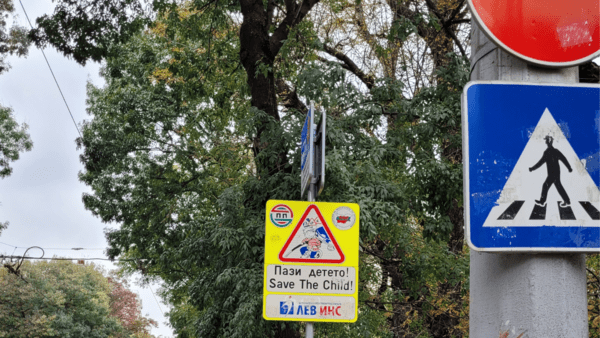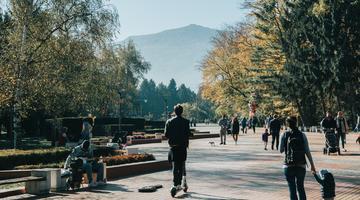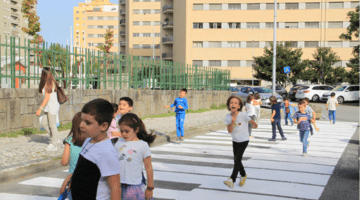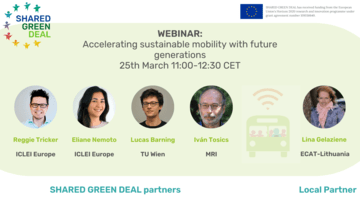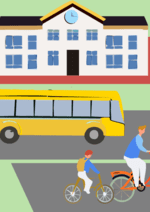From classroom to council: Youth pushes sustainable mobility in Braga, Sofia, Galway, and Panevėžys
It’s generally accepted - backed by surveys, mock elections, and anecdotal evidence - that Europe’s youth are more environmentally conscious than older generations. And it stands to reason: school-aged children not only care about the climate, but also have far less access to cars than the average adult.
When discussing Urban Mobility however, this needs to be considered alongside a third, often overlooked truth: children and young people have virtually no formal political power. They can’t vote, they don’t hold office, and their views are rarely sought in policymaking processes or even down-to-earth urban planning.
The new report, Accelerating the transition to sustainable mobility in schools, shares findings from an experiment that set out to support young students to address this very gap. Across four cities, around twelve schools, and more than 100 students, young people became active contributors to sustainable mobility planning in a year-long experiment that continues to carry dividends..
The efforts, focused around mobility labs in schools, reveals how effective youth engagement can be in helping to tackle one of Europe’s everyday climate and safety challenges: how students get to school in the best possible way.
While adults often assume that young people need to be taught about mobility issues, these labs flipped that assumption and demonstrated students - even the youngest had strong opinions about the surroundings. As one teacher describes it in the report
“When students are directly involved, they take ownership, which makes the changes more impactful and sustainable.”
In the four cities Braga (Portugal), Galway (Ireland), Sofia (Bulgaria), and Panevėžys (Lithuania) the young students participated in the mobility labs, which were more than just class sessions. They were structured co-creation spaces where students, teachers, parents and - in some cases - even local authorities worked together to analyse mobility challenges, design practical interventions, and develop city-level policy recommendations.
In Panevėžys for example, students helped develop school travel plans and a mobility game to raise awareness, leading to recommendations on how the local municipality can update their official Mobility Planning (SUMPS). In Braga, students’ ideas and persistence helped trigger changes to a bus schedule and the installation of a new pedestrian crossing.
As the authors of the report, Nadine Haufe from TU Wien and Andrea Tönkő from the Metropolitan Research Institute concludes in their report, the real-life topic of (sustainable) mobility holds a substantial promise for further use in schools. For benefit both of students, neighbourhoods and the environment.
“By incorporating mobility topics into school subjects, students develop a long-term awareness of sustainable transport options. Schools should also implement active learning experiences such as workshops, competitions, and student-led projects that engage young people in real-world sustainability challenges.”
To learn more about how you can bring mobility into schools, read the full report from the EU-funded project SHARED GREEN DEAL.
Related Green Deal Priorities
Related localities
Related events
Related Resources


CONTACT
For further details please contact co-leads Professor Chris Foulds (chris.foulds@aru.ac.uk) and Professor Rosie Robison (rosie.robison@aru.ac.uk).

This project has received funding from the European Union’s Horizon 2020 research and innovation program under grant agreement No 101036640. The sole responsibility for the content of this website lies with the SHARED GREEN DEAL HAS project and does not necessarily reflect the opinion of the European Union.
